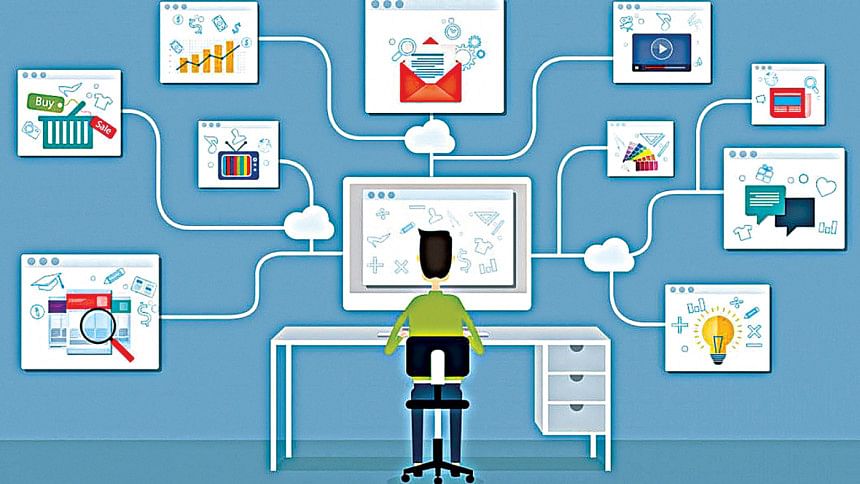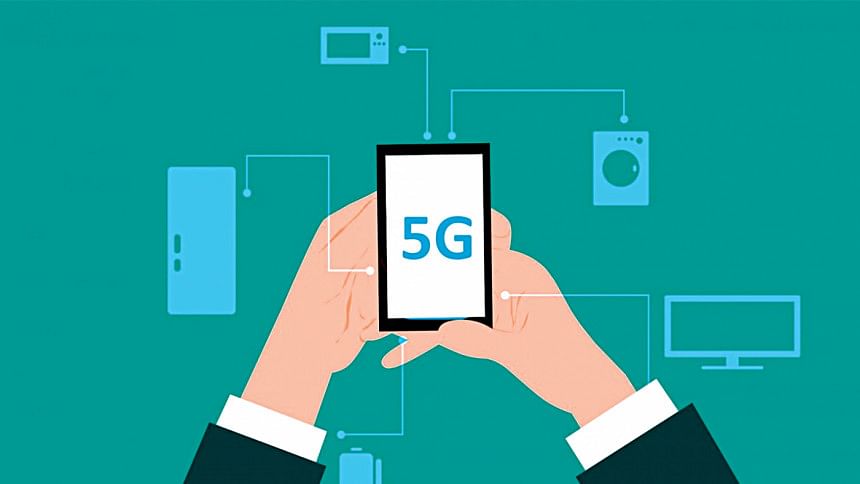The rise of digital life and how to embrace it

Every few decades, some ground-breaking innovations take place which completely transforms the way people live their daily lives.
Currently, we are in the digital era, where multiple changes are constantly occurring as we speak.
The rise of information accessibility has been facilitated by the revolution in technology, owing to the massive popularity of the world wide web.
With social media usage blowing up over the past decade and things like Artificial Intelligence (AI) and the Internet of Things (IoT) becoming an integral part of our everyday lives, we have certainly come a long way from the time of our ancestors.
With the digital age on the rise, people are now more connected than ever before. Widespread communication is now possible through the touch of one's fingertips as smart devices have become easily accessible for everyone.
It is projected that mobile data users will double by 2030, implying that unique mobile data subscribers may rise to 11.8 crore from 4.7 crore in 2020.
On the flip side, this seemingly available virtual connection has led to decreased face-to-face interactions.
We have become so engrossed in the virtual world that we are losing touch with reality. Human connections are becoming weaker as we are getting more obsessed with maintaining a perfect image on social media, rather than spending time with our loved ones upfront.
Apart from that, every aspect of our lives, including our work, transportation, education and entertainment are becoming integrated into the digital ecosystem through seemingly smart devices which were designed to improve our lives.

Hence, we need to adapt our lifestyle to progressive technology to thrive and navigate the constantly changing digital landscape.
As we know, the rise of digital advancements has made everything easily available. These days, we prefer to watch content on handheld devices, particularly smartphones with big screens, as it has given us the convenience to avoid carrying chunky laptops around.
Social media platforms and OTT platforms are grabbing our attention as they are constantly engaging us with their unique content.
These platforms are now competing with one another to draw and retain the attention of the current generation of users with quality content production and curation.
Additionally, navigation has become significantly easier with Google Maps showing the way quite accurately for most urban areas. The live feeds on the apps allow for real-time navigation to be more seamless than before.
Ride-sharing apps have utilised this to their advantage as they use these updated maps to save the time of their customers.
During the pandemic, educational institutions had to stop regular classes as Covid-19 cases went beyond control. During that time, educational institutions had to adapt to online teaching methods and depended heavily on the internet to ensure quality education.
Lectures were taken on platforms like Google Meet, Zoom, etc., facilitating intuitive learning for schoolchildren and university students.
The demand for smartphones increased significantly during the pandemic as children needed compatible devices to continue their education online.
Mobile Financial Services (MFS) were also available countrywide, and online banking gained traction as people had to stay at home to avoid the risk of catching the coronavirus.
It enabled people to send money to their loved ones from the comfort of their homes and allowed a more financially inclusive society to flourish, despite the pandemic.
Workplaces have also adapted to the new normal, with hybrid and remote working opportunities becoming a thing of the present.
It ensures a smooth workflow regardless of the location of the employees. Many organisations are also going through digital transformation and are integrating cloud computing services to stay updated with the latest trends.
Communication has become more fluid with instant messaging platforms enabling smooth connectivity on the go.
With the fifth generation (5G) of wireless connectivity recently being introduced in the country by the government, access to information will become easier than ever before.
Communication will become a lot smoother once the infrastructure develops throughout the country. When it comes to smartphones and other smart devices, 5G aims to provide an array of options for the new generation of users across the country.
With leading global smartphone brands like Xiaomi setting up their factories in Bangladesh, things are looking promising as 5G-enabled smartphones will become more affordable in the future for everyone to purchase due to local production.
As the Greek philosopher Heraclitus said, "the only constant in life is change". So instead of letting the ever-evolving technology dictate our behaviour, we must aim to use the latest technology to our advantage during these unprecedented times.
Ziauddin Chowdhury is the Country Manager of Xiaomi Bangladesh.

 For all latest news, follow The Daily Star's Google News channel.
For all latest news, follow The Daily Star's Google News channel. 



Comments